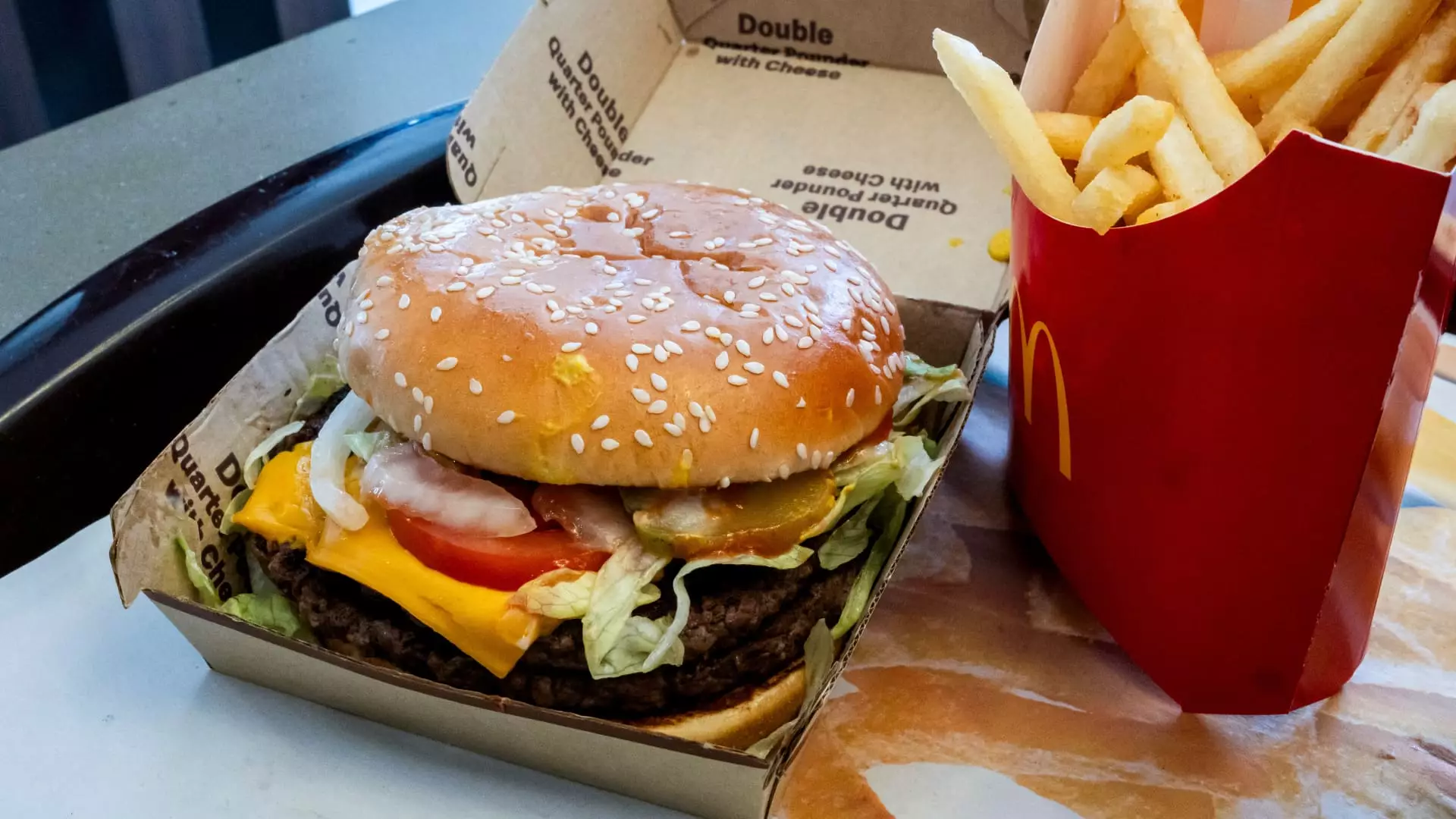This week, McDonald’s is set to reintroduce its iconic Quarter Pounder burgers at approximately 900 of its restaurants after a temporary suspension caused by a concerning E. coli outbreak. This outbreak, which is believed to have stemmed from a specific ingredient, has sparked significant alarm within the fast-food giant and among its customers. The affected outlets, representing around 20% of McDonald’s total U.S. locations, will serve these burgers without slivered onions—a precautionary measure reflecting the ongoing investigation into the outbreak’s origins.
The outbreak has primarily impacted restaurants across several states, including Colorado, Kansas, and Wyoming, along with portions of Idaho, Iowa, Missouri, Montana, Nebraska, Nevada, New Mexico, Oklahoma, and Utah. The decision to exclude slivered onions from the Quarter Pounder recipe illustrates McDonald’s commitment to customer safety as health authorities continue scrutinizing the situation.
As the investigation unfolds, McDonald’s appears to be taking a proactive approach to mitigate risks associated with the outbreak. Cesar Pina, the company’s Chief Supply Chain Officer, has expressed confidence that the issue is localized to a single ingredient, emphasizing that any contaminated products have been removed from their supply chain. This confidence stems from recent testing conducted by the Colorado Department of Agriculture, which found no traces of E. coli in tested beef samples from restaurants.
In contrast, health authorities are focusing their investigation on slivered onions supplied by Taylor Farms, which has been indefinitely dropped as a supplier. The Food and Drug Administration (FDA) is still determining whether these onions are indeed to blame for the outbreak, highlighting a critical aspect of food safety within the fast-food industry. The decision to temporarily withdraw the suspect ingredient marks a significant step in restoring consumer confidence in McDonald’s products.
According to the Centers for Disease Control and Prevention (CDC), the E. coli outbreak has resulted in 75 confirmed cases across 13 states. Disturbingly, a reported 61 patients with detailed information reveals that 22 required hospitalization, and two individuals experienced severe complications linked to the infection. Moreover, a tragedy occurred when an older adult from Colorado succumbed to the illness. These figures serve as a sobering reminder of the potential severity of foodborne illnesses, thus underscoring the importance of rigorous food safety protocols.
The timeline of reported cases suggests that the outbreak occurred between September 27 and October 11. Given McDonald’s extensive sales volume—averaging nearly one million Quarter Pounders in the affected regions over two weeks—this incident raises essential questions about food sourcing and safety in the fast-food industry.
In response to customer concerns and the growing unease surrounding food safety, McDonald’s USA President Joe Erlinger publicly issued an apology conveyed through a video addressing frightened customers. His acknowledgment of public sentiment—stating, “we are sorry”—demonstrates a crucial effort to reconnect with their consumer base during a challenging period. Such transparency is vital, not only to reassure customers but also to maintain brand loyalty amid scrutiny.
As the company gears up to report its third-quarter earnings, the response from McDonald’s in the wake of this health crisis will be under significant examination by investors and customers alike. The recent dip in share prices, which has fallen by 7% since the CDC linked the outbreak to the company, exemplifies the financial repercussions of health crises in the food sector.
McDonald’s upcoming reintroduction of the Quarter Pounder will occur gradually, ensuring that supply chains are fortified against the risks that led to this outbreak. Ensuring the removal of questionable ingredients and prioritizing consumer safety will be paramount as the company navigates the complexities of restoring its reputation.
Ultimately, the lessons learned from this incident may lead to more stringent oversight and improved transparency in the fast-food industry. As McDonald’s takes steps to recover from this setback, customer education and safety will be critical components in striving to regain public trust in their brand. In an era where consumers are increasingly attentive to food safety and transparency, the industry must rise to meet these expectations head-on.


Leave a Reply